Protein is defined as a macronutrient that is needed for building muscle mass and facilitating many chemical reactions in the body. Besides proteins, two other macronutrients that are equally important are fats and carbohydrates. Proteins are composed of amino acids. Even though the human body is capable of producing some amino acids, some amino acids must come from food. The nine amino acids that can not be produced naturally are known as the nine essential amino acids. They are histidine, isoleucine, leucine, lysine, methionine, phenylalanine, threonine, tryptophan and valine. On an average, 25% of a person’s calories must come from protein.
Black Beans
Black beans are a fiber and protein rich source of carbohydrates. 100 grams of beans yield 21.6 gram of protein which makes it a notable part of any healthy diet. Generally, legumes are filled with iron. Besides, black beans are a rich source of magnesium, thiamin, potassium, and folate. Folate and iron clubbed together support the production of red blood cells and improves blood flow, while folate plays an integral role in preventing neural tube defects during pregnancy. Additionally Folate helps in lowering the risk of heart disease, stroke, and peripheral artery disease.
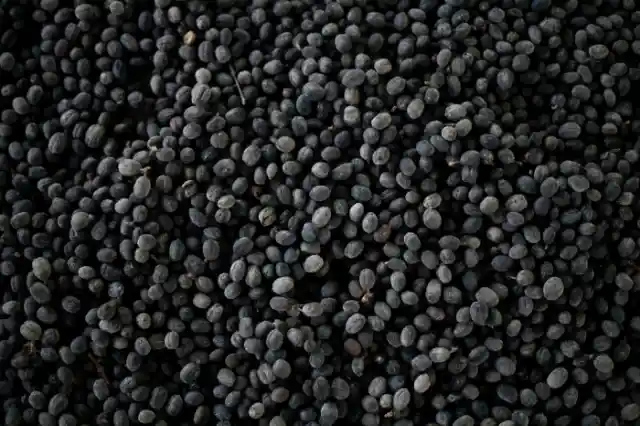
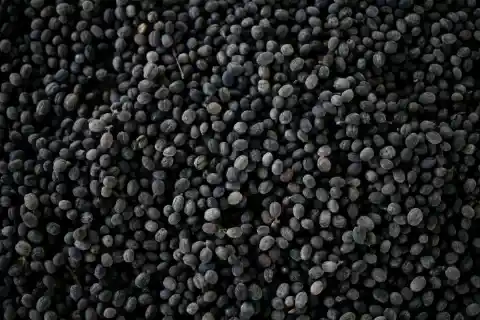
Eggs
One of the best animal products that provide you protein, nutrients, and healthy fats are eggs. Whole eggs are high in protein. As a matter of fact, 35% of the calories in an egg come from protein, and one large whole egg contains 6 grams. Studies reveal that eggs can help a person feel satisfied and full for longer, helping prevent overeating. Eggs are versatile, can be eaten any time of the day, are low in calories, affordable, and easy to store. A myth about eggs is that they are bad for cholesterol levels. However, that is far from the truth. Though egg yolks are high in dietary cholesterol, their effect on blood cholesterol levels is minimal when compared to the effects of saturated and trans fats. If you still are not convinced about it, egg whites are full of protein and cholesterol-free.
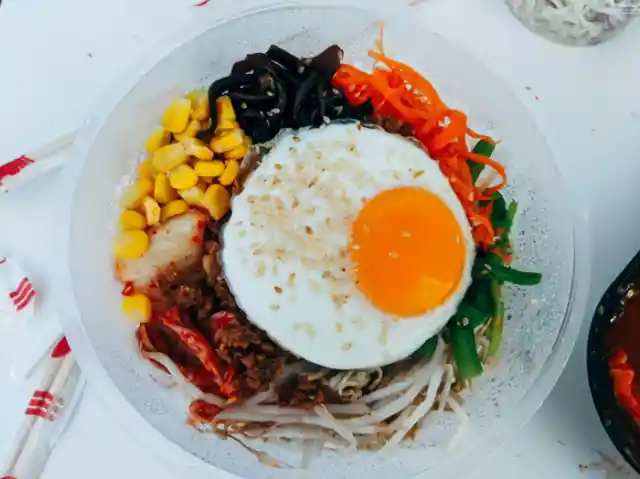
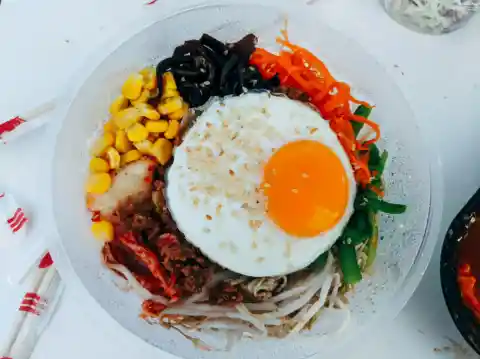
Cottage Cheese
Cottage cheese is a soft, unaged cheese which is made from the curds of pasteurized cow’s milk. It is one dairy product which has an abundance of casein protein, and is loaded with calcium, iron, phosphorus, riboflavin, and vitamin B12. Protein accounts for 70% or more of the calories in nonfat cottage cheese. Casein is digested more slowly than whey protein, feeding the muscles all day or night. In fact, studies have proven that cottage cheese imitates the same long-lasting fullness as eggs.


Oats
Protein is a richer source of protein than any other common grain- 17 grams per 100 grams. Even though oats do not comprise all nine of the essential amino acids, like most plant sources, they are considered a high-quality option. Raw oats are simple to prepare, which implies controlling sugar content and flavor is not difficult. Moreover, oats are whole grains, which makes them high in fiber, an essential nutrient that aids in lowering cholesterol levels, reducing risk of inflammatory diseases, and controlling blood glucose.
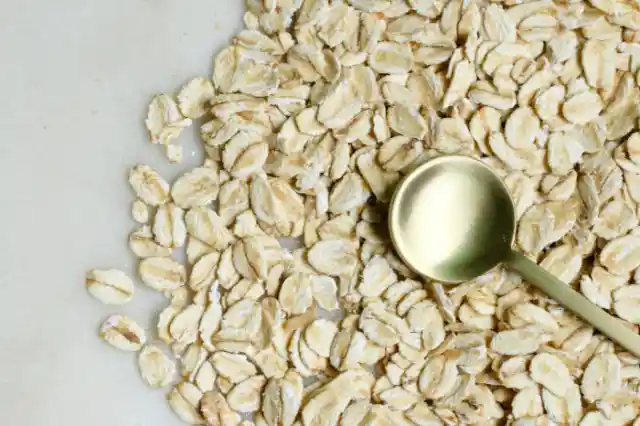
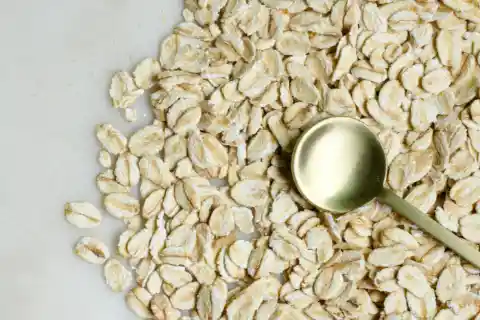
Turkey Breast
Turkey breast comparatively has the same amount of protein (29 grams protein per 100 grams of roasted turkey) as chick breast, but with fewer calories and dietary cholesterol. If you compare the two, the nutritional values are almost similar so it comes down to flavor preference. Turkey has a firmer texture with a more distinct taste than chicken. Like all meats, turkey beast is a wholesome protein containing all the essential amino acids including tryptophan, which helps in regulating sleep.


Quinoa
Quinoa has become one of the most popular exotic grains of the present times. Hailing from the Andes mountains in Bolivia, Chile, and Peru, people in these regions have consumed the grain for thousands of years. Quinoa is practically a seed, not a grain. Though most plant products contain only some of the essential amino acids, quinoa is one of the complete vegetarian proteins. One hundred grams of cooked quinoa contains 4.4 grams of protein.


Guava
Most of the time fruits are not considered as protein sources, but guava is the most protein-rich fruit. It also comprises antioxidants vitamin C and lycopene. Moreover, carotenoids, like lycopene, from guavas, can protect the eye against light-induced damage, cataract development, and age-related macular degeneration (ARMD). There is about 2.6 grams of protein in 100 grams of guava.


Fish
Fish generally is high in protein. Some varieties even provide as much protein per ounce as chicken and lean beef. Wild-caught fish is normally higher in protein than farmed fish. Halibut precedes over the rest. Even though this white fish contains a moderate amount of mercury, it is an excellent addition to the diet, with more than 30 grams of protein in half a fillet. Salmon is another excellent source, one of the healthiest fatty fish. Trout is also a good alternative, boasting all the essential minerals and plenty of protein. Cod, farmed tuna, and haddock make the best-of list, as well.


Pistachios
Pistachios are a good protein-filled snack which consists of 20 grams of protein per 100 grams. Pistachios are moderately high in calories but they are also rich in fiber, vitamin B6, iron, phosphorus, and vitamin E. The only con of pistachios is their sodium content, as most of the packaged options contain salt. Alternatively, you can look for low-sodium or sodium-free options.
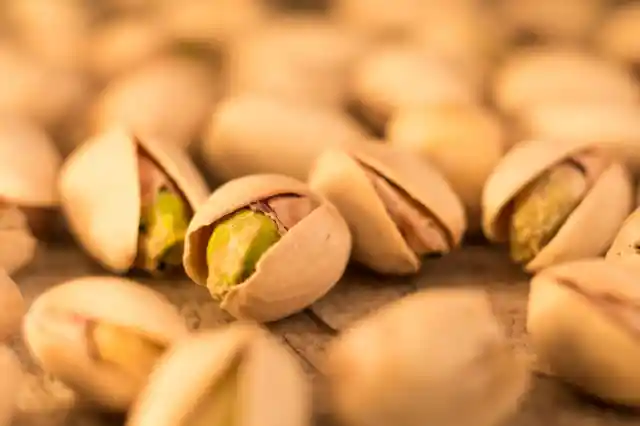
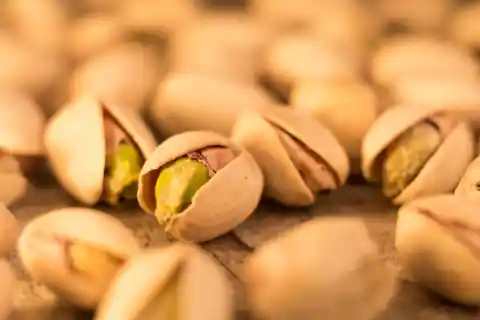
Greek Yogurt
Nonfat Greek yogurt consists of more than 60 percent of its calories as protein, with 17 grams in a single, 6-ounce serving. This impressive content when compared to traditional yogurt is responsible for the variety’s rapid rise in recent years. The protein packed in Greek yogurt, casein, is the same as cottage cheese which makes it an attractive choice for bodybuilders and anyone else who is looking to pack on lean muscle. Besides protein, Greek yogurt has a lot of bone-building calcium and probiotic bacteria, which is good for gut health and motility.
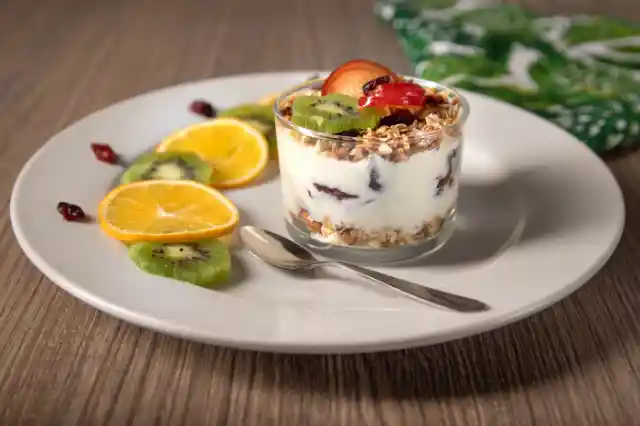
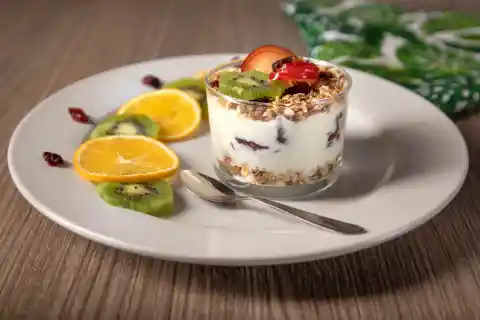
Hemp
Several people who prefer a vegetarian diet consider hemp seeds a good alternative as it offers high amounts of plant-based protein. On an average 25 percent of the calories in these seeds come from protein. Hemp provides essential amino acids, which a lot of plant-based protein sources lack. Hemp protein powder is another famous and complete protein source.
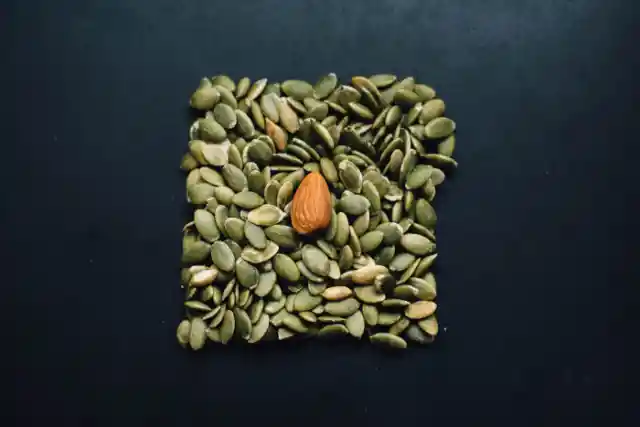
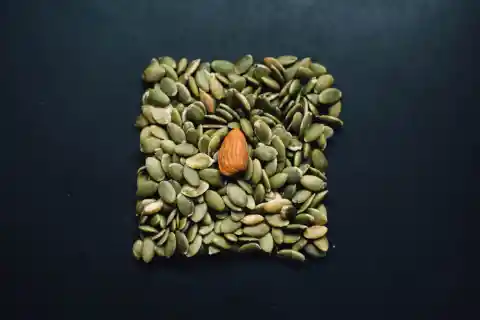
Chia and Flax Seeds
Chia as well as flax seeds contain a fair amount of protein along with essential omega-3 fatty acids. These seeds are a concentrated source of nutrients that helps you to maintain health and wellbeing. Chia seeds have a bland taste, while on the other hand flaxseeds have a robust, nutty flavor. When compared, research reveals flaxseeds have a slightly higher protein profile at 8 grams per ounce, while chia seeds have 4.7.
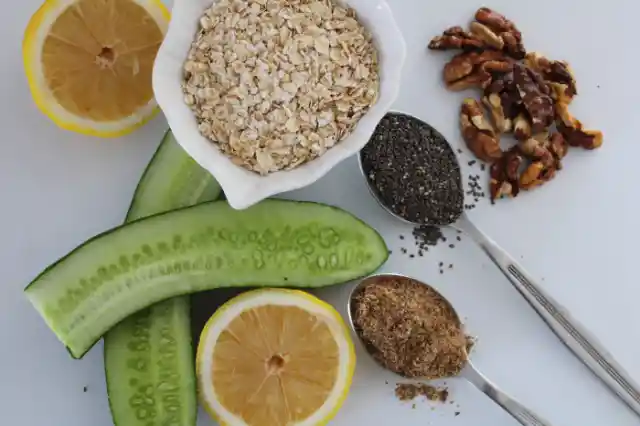
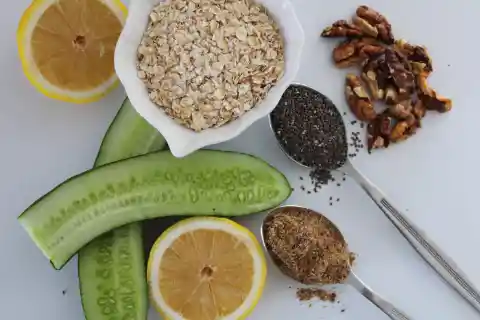
Almonds
Almonds make an unbelievable healthy snack that is high in fiber, calcium, vitamin E, and niacin. But their nutrients are not limited to it, they also boast 6 grams of protein for every 1-ounce serving, around 23 almonds. Though almonds are fatty, two-thirds are heart-healthy monounsaturated fats. Of all the varieties, research explains nonpareil almonds contain the most protein.
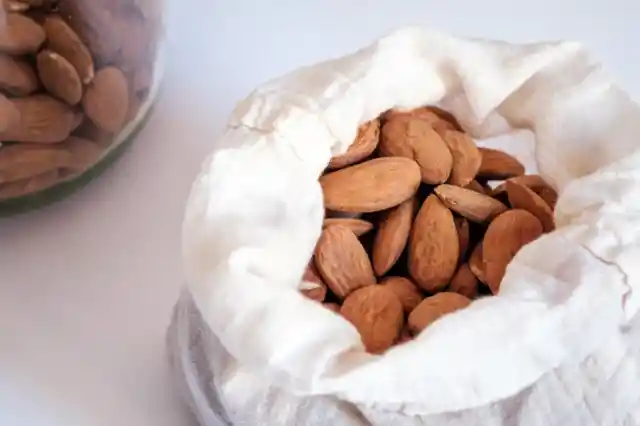
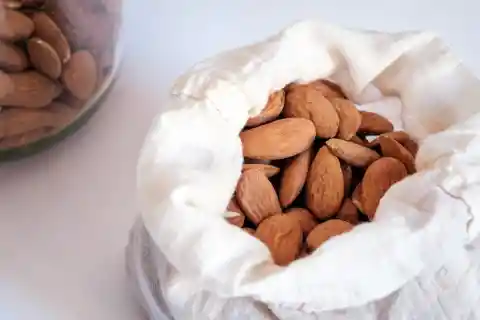
Lentils
Lentils are a type of legume known for its protein-rich seeds. They contain 25 percent protein which makes them an excellent alternative to meat like beef and lamb. Studies point out that lentil-based flours and dry concentrates have high nutritional value and make for an easy source of this essential nutrient. Lentil and potato soup is a famous recipe that is filled with extra protein from the potatoes. Even though they are not a remarkable source, potatoes still have approximately 2 grams of protein per 100 grams, and a medium potato has about 4.3 grams of protein.
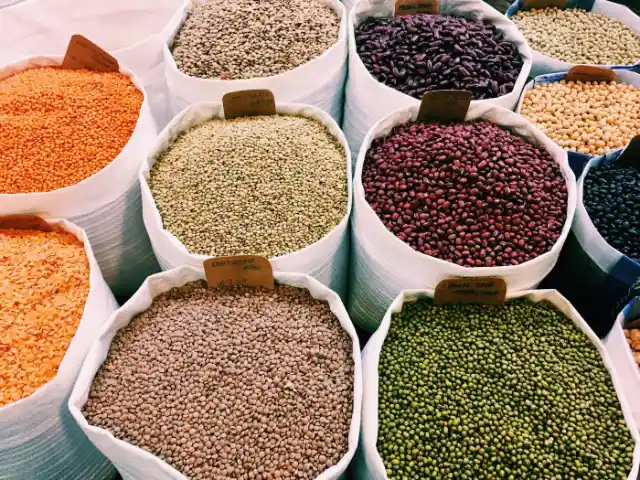
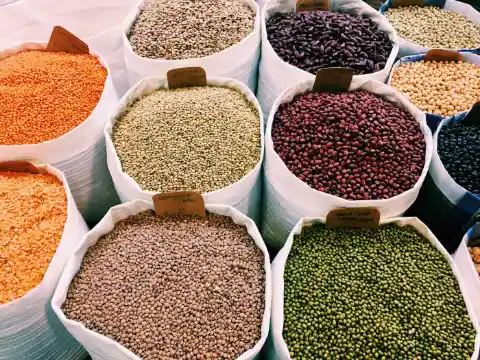
Tempeh
It is a traditional Indonesian soy product that comes from fermented soybeans and is abundant in protein. It contains 19 grams of protein for every 100 grams which makes it another eminent alternative for meat protein. Tempeh may also be made with flaxseed which will further boost its profile. Some variations are gluten-free, while others contain wheat, so people on a restricted diet are advised to read labels carefully.

